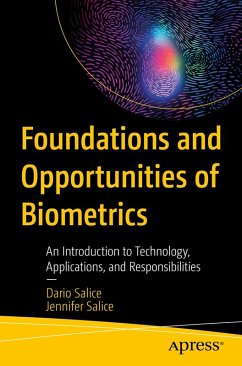This book provides a comprehensive overview of the type of biometric signals that are being used, how they are implemented, and what their limitations are. With technology being more relevant in all aspects of life, it's more important for people who make decisions in their business to understand the opportunities and limitations of biometric use.
This book will guide the readerthrough the history of biometric technology, including initial applications of the technology, and reflect on how pop culture like science fiction media has influenced the way we look at biometrics and shaped our expectations and fears. It also covers real-world applications and how they work. This book provides foundational information that will help readers understand how they can use biometrics in their everyday life and assess their ability to disrupt existing business processes and models.
What You Will Learn:
How Biometrics have evolved over time and the main drivers for them being disruptive.
The scope and limitations of various types of biometrics.
Foundational knowledge to lead the conversation about biometrics within your company.
An analysis of BMD sources that remain stable over time.
Develop an analytical understanding of accuracy, precision and errors and understand how the various uses of BMD rate within these contexts.
Who This Book Is for:
This book is aimed at people who have an interest in technology, but perhaps aren't very technical themselves. It focuses on business leaders, product managers, product designers, etc. who want to understand the opportunities biometrics offer to their customers and how to implement them in a useful and effective way.
Dieser Download kann aus rechtlichen Gründen nur mit Rechnungsadresse in A, B, BG, CY, CZ, D, DK, EW, E, FIN, F, GR, HR, H, IRL, I, LT, L, LR, M, NL, PL, P, R, S, SLO, SK ausgeliefert werden.









